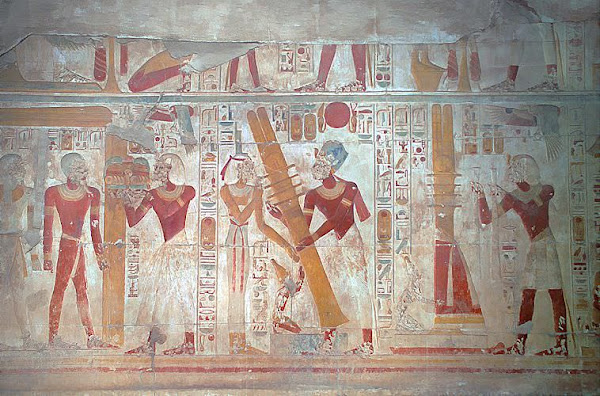Recent am făcut o analiză de nespecialist asupra nivelului de separație a puterilor în SUA. Spun nespecialist fiindcă nu am pregătire juridică. Totuși nimeni nu poate fi străin de aceste aspecte, fiindcă cel puțin în România toți am fost chemați la referendumul de aprobare a Constituției și nu puteam merge la vot fără să știm și să înțelegem Constituția, în intimitatea ei.
Nu mi-a trebuit mult, cu mintea mea nejuridică să înțeleg că această mult trâmbițată emblemă a democrației este goală de conținut, fiindcă în practică această separație nu este nici măcar un ideal, ci o simplă iluzie. Mă rog, puțin mai complicată, dar tot o iluzie.
Filozoful francez sau ce a fost el, Montesquieu, a emis în vremuri pre-moderne prima dată această idee (după modele antice cred), dar s-a contrazis de la început fiindcă practic a profețit separarea puterilor în stat și ca un sistem de ținere sub control între puteri, care în majoritatea statelor cunoscute nouă sunt trei, (deși teoretic pot fi oricât de multe). Executivă (Președintele, Guvernul), Juridică (Curțile Judecătorești) și legislativă (Parlamentul).
Puterile care se controlează una pe alta nu mai sunt separate, sau nu mai sunt puteri.
Un exemplu al acestei grave erori "filosofice" introdusă în Constituția SUA, prima care s-a servit de acest model, este posibilitatea demiterii Președintelui SUA de către Parlament, Congres cum se numește acolo. Împreună cu o altă încălcare a unui principiu de drept care spune că o hotărâre a unei instanțe nu poate fi atacată de o instanță inferioară. (Despre principiile de drept și obligativitatea lor, nu știu mare lucru dar aud mereu sintagma "principiu de drept" sau și mai des "încălcarea unui principiu de drept").
Prima instanță ar fi electoratul, o putere care se manifestă rar deci nu e inclusă în lista lui Montesquieu, iar a doua Congresul. Congresul nu poate dezlega ceva ce a legat electoratul adică. La noi totuși avem mai multă aparență fiindcă Președintele poate doar să fie suspendat de Parlament, iar demiterea se poate face doar în același mod în care a fost făcută instituirea, adică prin referendum al aceluiași electorat. Alte exemple ar fi anularea (blocarea) multor decrete prezidențiale (Executive Orders) de către judecători din orice jurisdicții de pe teritoriul SUA.
Faptul că Președintele, șeful Executivului, trebuie să contra-semneze orice lege emisă de Legislativ, iar o curte, CCR, poate să blocheze sau să modifice orice lege emisă de Legislativ cred că lămurește definitiv și pe oricine, că această separație a puterilor nu există în realitate decât ca dogmă și mijloc de propagandă și fanfaronadă. Deși în România această obligativitate a conta-semnării este goală de conținut, cel puțin în practică, pentru că președintele poate să trimită înapoi în Parlament o lege o singură dată, (iar aici se naște o nouă discuție, dacă Parlamentul nu o modifică și o trimite înapoi președintelui spre semnare, apare chiar un fel de recurență sâcâitoare).
Am spus că la noi există mai multă aparență, asta în cazul demiterii președintelui. Această aparență se risipește însă în cazul emiterii legilor de către Guvern. Conform
unor autori, un sfert din legile României sunt date de Guvern și nu de Parlament, deci de către Executiv, cu unii ani în care Guvernul a emis aproape la fel de multe legi (Ordonanțe simple și de urgență) ca și Parlamentul.
"Minim un sfert din actele normative emise în România au fost elaborate de Guvern, iar nu de Parlament. În unii ani (2008, de pildă), Guvernul a emis aproape la fel de multe acte ca și Parlamentul." spune autorul din link-ul de mai sus.
Un abuz, se spune mai departe senin în articolul pe care îl am în minte. Da, este abuzată utopia, mai ales în cazul emiterii de ordonanțe peste limita legii de abilitare sau de ordonanțe care au ca obiecte modificarea unor legi cu efect asupra justiției însăși, prin încălcarea de un număr inimaginabil de ori a Constituției. (Poate de prea puțini plâng asupra acestor abuzuri și fărădelegi instituționale, cui îi pasă de abuzul unei utopii).
Este adevărat că toate ordonanțele emise de Guvern trec și prin votul Parlamentului și pe masa Președintelui ca să devină legi. Însă Constituția prevede și un tip de aprobare tacită, adică dacă Parlamentul nu se pronunță (sau chiar dacă nu discută) un OUG în 30 de zile, OUG-ul se consideră aprobat. Astfel, Guvernul poate emite legi care nu sunt revizuite de către Parlament. Avem în acest caz înlocuirea sau substituția puterii legislative de către executiv.
Faptul în sine, acela că Guvernul poate legifera, și nu abuzurile practice, generalizarea excepțiilor, încalcă ideile nemature, utopice, din prima parte a modelului lui lui Montesquieu.
Mai mult decât atât, CCR, o curte, parte din Juridic, modifică la greu legile, substituindu-se în mod curent Legislativului. La simpla cerere a unui inculpat,
probabil nu a oricărui inculpat, care se face conform
unui ghid, CCR judecă legile însele, aceasta fiind principalul obiect de activitate al acestei curți, modificând virgule, cuvinte și paragrafe.
Într-un singur an, 2009, CCR a modificat
1708 legi. Pe total, CCR a modificat un număr de legi sau paragrafe din legi asemănător cu numărul total de legi emise de Parlament.
Această practică generalizată este și un fel de justiție în afara sistemului de curți și apeluri, care se face nu prin judecarea inculpaților, ci prin judecarea legilor de către o curte.








